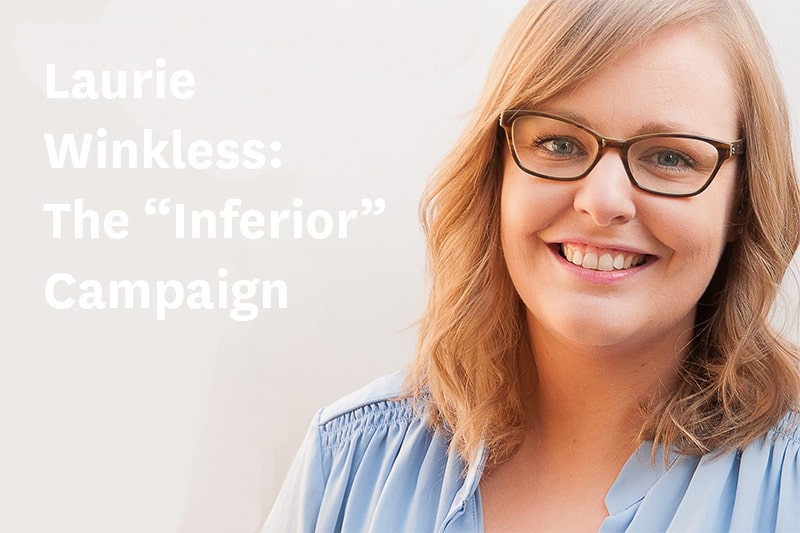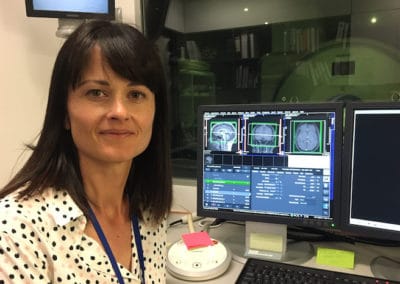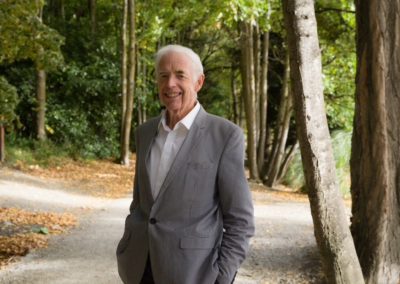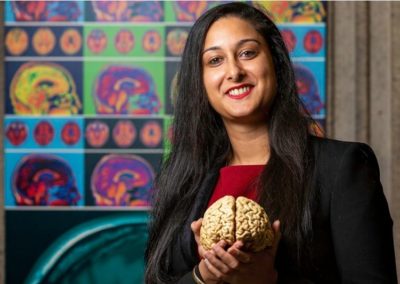For the occasion of International Day of Women and Girls in Science 2020, Brain Research New Zealand stepped up their game to celebrate women’s achievements, encourage more girls into science, and fight the gender biases in science as early as possible. An initiative we were particularly excited about is our support of a campaign by best-selling author and science comms superstar Laurie Winkless. Laurie made it her mission to bring a copy of Angela Saini’s “Inferior: How Science Got Women Wrong and the New Research that’s Rewriting the Story” into every secondary state schools in NZ. Now that the campaign has successfully concluded and “Inferior” has arrived at all 355 schools, we caught up with Laurie for a chat.
Why did you decide to run the “Inferior” campaign? What was your motivation?
Laurie Winkless: We initially responded to a call from my friend Dr Jess Wade – she really provided the inspiration for the campaign, as she’d spearheaded a much larger one in the UK and Ireland. For many women in STEM, the publication of Angela Saini’s book “Inferior” was an ‘aha!’ moment – it showed that so many of the stereotypes that plague modern society were often based on really bad science – experiments with small sample sizes and low repeatability, studies carried out on a single species but extrapolated to humans, or those shaped by unconscious (or occasionally conscious!) bias. It is an important book; one that should be read by as many people as possible. So getting it into school libraries felt like a worthwhile endeavour. Lilly-Marie Taylor felt the same way, so we teamed up and started on the campaign.
I’ll admit that part of my motivation was selfish – the first time I read the book, all I kept thinking was “I wish this had been around when I was 15 or 16!” I’m lucky to come from a family that has always supported my interest in science, but despite this, I still somehow internalised the idea that my enjoyment of physics was weird and that it wasn’t based on any innate talent for the subject. My exam results showed that I was at the top of the class, but I never really believed it. In my mind, if I wanted to do as well as the boys, I’d have to work extra hard, and the result was a huge amount of mental stress and worry. So, I wanted to get this book into the hands of students (especially girls) who might be struggling similarly. Hopefully it’ll help them realise that a lot of the messaging they internalise is based on lousy science.
What are your favourite debunked stereotypes in the book?
I think it’s the idea that “Male and female brains are just different”. Angela Saini’s book showed that not even the best neuroscientist can identify someone’s sex simply by looking at a brain scan. And in studies on mathematical ability, verbal fluency, fine motor skills etc. on babies, the gap between boys and girls is either tiny or non-existent.
Working as a physicist and a science communicator, have you encountered some of the stereotypes mentioned in the book yourself?
Absolutely – more often than I can count, though it’s typically been from people who don’t know me very well. When I worked in research, I had several experiences whereby a contractor, visitor or even a few PhD students assumed that my male colleague was the expert or the senior researcher, when in fact I was. Once at a conference, I was told that women physicists are “a scourge” and we’re only there to distract the men from their work. Out in the wider world, I’ve been told that I’m “too pretty to be interested in maths”, and I’ve been accused of being a “diversity hire”. Since setting up my own business, I’ve also had a few horrible experiences, but I now have the confidence to bite back.
You have now sent “Inferior” to all 355 secondary state schools in NZ. How did the school teachers and librarians react?
I’ve had the most amazing emails from school librarians all over the country. It’s made my inbox a very happy place! Here are just a few highlights:
“This book has come at a great time for us – the students are doing reading responses on books about gender equality, pre-conceptions, stereotypes etc.”
“This copy of Angela Saini’s ‘Inferior’ is a valuable addition to our collection, and I know that it will be a much used and touted by both our teaching staff, but most importantly by the young women and men who care about equality, equity and equal academic opportunity.”
“Working in a school for girls we are constantly telling them that ‘girls can do anything’. This book proves it.”
“We are lucky enough to have some fabulous female scientists on our staff who will enjoy reading this. I also believe that not only do we have to encourage our young women that they can achieve in sciences and maths but we also need to educate our boys that women are their equals.”
“What a treat in the mail today. Thank you so much for the copy of ‘Inferior’. I am going to read it cover to cover – some great research and information. We are an all-girls school with a limited library budget and this book is gratefully received, I will be promoting it to all.”
“Recognising gender inequality is an issue we all need to acknowledge and be able to challenge. The book can resonate with students on a personal level, and also be a very useful resource for research assignments. It is a welcome addition to our collection.”
“The book is thought provoking and should be read by all! As a co-educational school, we believe in empowering women in all areas, and resources like this will aid that ongoing campaign.”
And how did YOU feel after achieving this feat?
I felt – and feel – amazing. As someone who has loved libraries her whole life, working on this campaign was a privilege. We set out to achieve a difficult goal, and with the help of the NZ public, and most importantly, Brain Research New Zealand, we did it. Working together, we’ve added an important book into the nation’s school libraries, and I hope, we’ve changed the minds of teachers and students all over NZ. I feel incredibly grateful to everyone who provided the funds to make this happen. The hardest thing is not being able to share in the celebrations with Lilly, who we sadly lost just over a year ago. But I know she’d be so, so thrilled.
What’s next? How will you continue to shake up the science landscape?
I’m taking a break from fundraising for a while. The “Inferior” campaign took an enormous amount of time and effort, and I did the vast majority of the legwork by myself. I’ll keep on writing – mainly working on my next book – but also for various outlets like Forbes and The Spinoff. I like to tell stories in my work – to introduce the public to research they’ve never heard of, to question the hype, to understand the value (and the complexities) of science, and to meet the people behind the lab coats. The science landscape is inseparable from culture, from politics and from daily life. And I really want to help people realise that.



